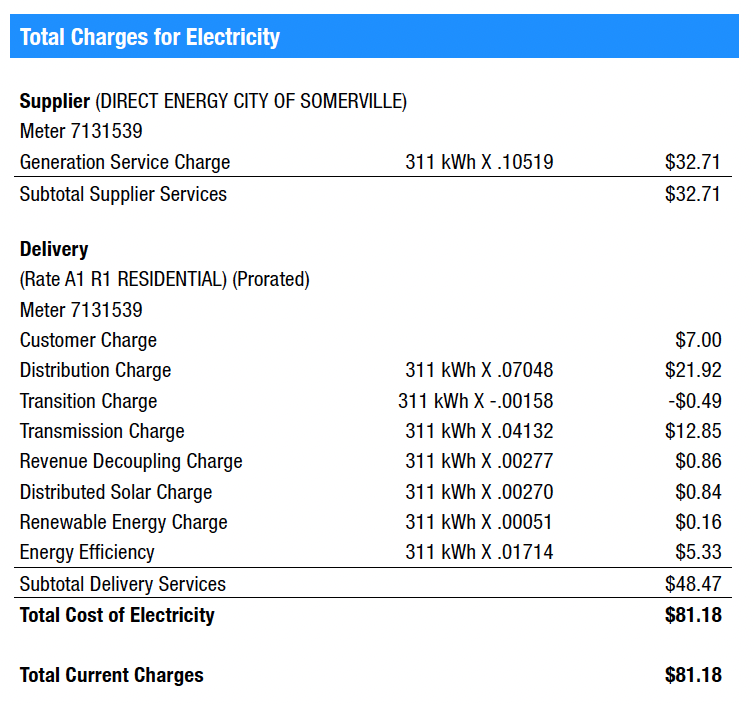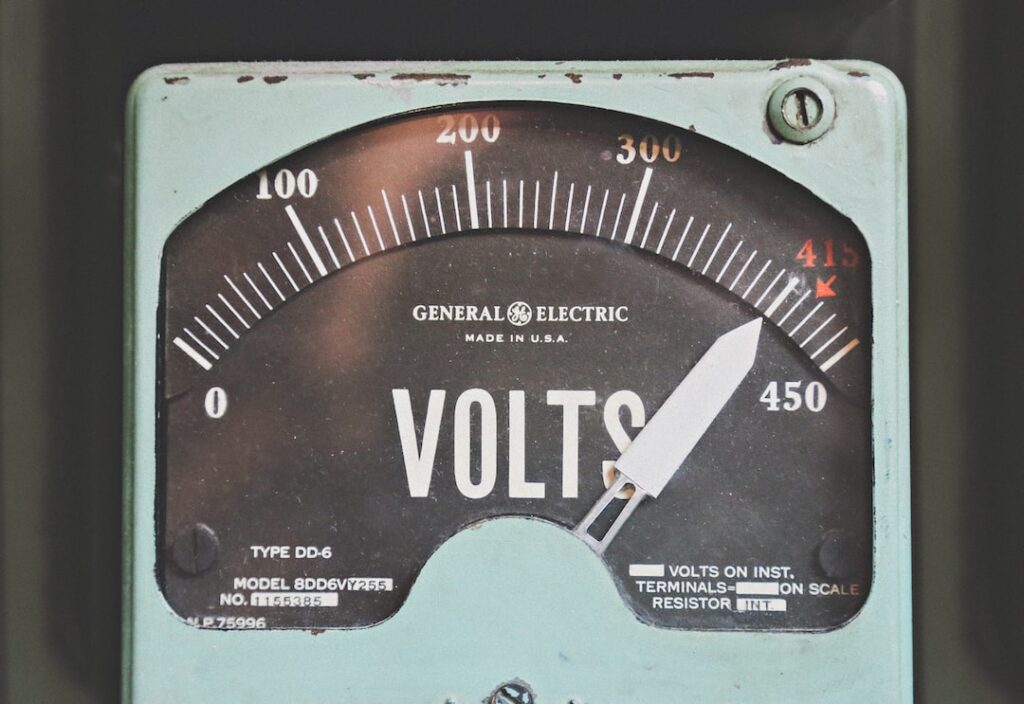The idea of how to manage utility bills has traditionally been a low priority for most businesses. For most managers, utility bills are simply another cost of business that cannot be controlled.
Beyond the daily challenge of who gets to control the thermostat first, most managers just want to know that the lights will turn on and the computer servers will not be interrupted by a malfunctioning air conditioner.
However, for some industries with energy-intensive facilities such as data centers, power bills are a significant expense which is why managers focus on how to manage utility bills.
Today, 20% of an average office’s energy bill is spent on heating, cooling, and lighting. In major US cities, utility billshave been rising at rates higher than the rate of inflation.
From your supply chain to customers who walk into a storefront, stakeholders are increasingly interested in doing business with companies pursuing sustainable practices. And investors are looking for any ways to protect their portfolios from rising energy costs and power outages.
So what’s the best way to reduce energy costs? Here are four ways to save your company money.
Table of Contents
- Maximize Negawatt Potential
- Invest in Smart Controls
- Invest in On-Site Renewables
- Contract Off-Site Renewables
- Know Your Energy Consumption
- Track Your Usage
- Compare Utility Charges
- Use Energy-Saving Tips
- Take Advantage of Discounts
- Get an Energy Audit
- Educate Yourself on Energy Efficiency
- Install Energy-Efficient Appliances
- Use Energy-Saving Strategies
- Stay On Top Of Your Utility Bills
- Take a Look at Your Current Bills
- Call Different Utility Companies and Get Quotes for the Same Services
- Know When Your Bills Are Due
- Set Up Automatic Payments
- Keep Track of Your Usage
- Make a Budget
- Talk to your Utility Provider
- Frequently Asked Questions
- What costs the most on a utility bill?
- How can you reduce electric bills in your house?
- How can I make my bills cheaper?
- Conclusion
How to Manage Utility Bills
1. Maximize Negawatt Potential
In 1989, physicist Amory Lovins coined the term “negawatts” to describe the energy saved by energy efficiency and conservation. Twenty-five years later, most companies still aren’t fully utilizing their energy-saving potential.
Managers often only consider energy efficiency when they are about to renovate their buildings. This thinking, however, can cause you to miss out on saving 20% or more of your energy expenses just by making minor changes to how your building and equipment are operated.
There are significant cost savings to be gained from things like improving the efficiency of your boilers and your HVAC system and tweaking your building management system. This process is called “retro-commissioning” and can have a fast return on investment.
Major capital investments such as renovations or retrofitting, which most companies do once every few decades, provide the opportunity to save even more money thanks to recent developments in green building. Retrofitting your existing building with energy-efficient technology can help you save 20% to 50% on your energy bills.
In addition to improving productivity and reducing costs, the same measures that help increase efficiencies can also improve other business metrics, such as sales, leasing, and customer satisfaction.
2. Invest in Smart Controls
Every major business in the US is on some sort of commercial tariff with their utility providers, and that tariff includes something called a ‘demand’ fee. This is essentially an extra charge for businesses that consume a lot of energy over a short amount of time, rather than at a constant level.
A ‘demand’ fee is charged at 30% to 70% of the average electricity bill.
The Internet of Things (IoT) has opened the door for new possibilities in utility bill management.
Smart controls such as programmable thermostats for air conditioning or water heating can shift certain loads and slash demand charges by up to 60% and lower electricity consumption by 40%.
Smart controls are even more beneficial as they allow you to improve the comfort of your employees for increased productivity, as well as better monitor your energy usage and equipment performance, and effectively manage any repairs.
3. Invest in On-Site Renewables
Did you know that your office building’s shiny, south-facing roof and pristine lawn make excellent locations for solar panels? And that your massive, multi-story parking garage makes an excellent location for battery storage?
In addition to improving your ability to withstand outages, a solar battery can smooth your energy usage, reducing peak energy demand charges. It does this by storing excess solar power and supplying it during high-demand times.
Solar panels and battery storage are not technologies of the future but of the present. By pairing solar panels with batteries, companies in most areas of the country will be able to afford them within five years. Many companies are already taking advantage of this money-saving technology for their utility bill management.
Companies that invest in solar panels and batteries now can save money in the long run, as the price of electricity continues to rise and the cost of these systems continues to drop. Many companies such as Walmart, Intercontinental Hotel Group, and others have already installed solar panel systems, and have seen their energy bills decrease as a result.
4. Contract Off-Site Renewables
Solar and wind developers are more than willing to work with you. Why not agree to buy from them as part of your utility bill management?
Large renewable-energy purchases can help cut costs by allowing you to enter into contracts with utility providers directly. This can help you secure power for 10 to 20 years, earn you some good press, and help you meet your sustainability goals.
Both GM and Hewlett-Packard have entered into agreements to purchase renewable energy from wind farms in Texas and Mexico, while Kaiser-Permanente has installed its own solar farms in Northern California. Wind energy has become increasingly attractive to corporations and other large institutions, which accounted for 25% of newly installed wind energy.
The corporate executive can choose to focus on one, all, or any combination of these energy management strategies. However, as utility costs continue to rise, it’s more important than ever to learn how to manage utility bills.
 (Source)
(Source)
Establish a Budget
One of the best ways to get a handle on your finances is to establish and stick to a budget.
This can be especially difficult when it comes to electricity bills.
Here are a few tips on how to manage utility bills and stay within your budget.
1. Know Your Energy Consumption
This will help you create a household budget for future months.
2. Track Your Usage
This will help you identify any areas where you can cut back.
3. Compare Utility Charges
Compare rates from different providers and switch if you can find a better deal.
4. Use Energy-Saving Tips
Things like turning off lights when you leave a room, using energy-efficient light bulbs, and turning down the thermostat can make a big difference in energy savings.
5. Take Advantage of Discounts
Take advantage of these discounts to save even more money. Following these tips can help you manage your utility bills and stay within your budget.
Compare Rates and Services
Another way to manage your utility bills is to compare rates and services.
There are a lot of different utility companies out there, and they all have different rates and services. By shopping around and comparing rates, you can make sure you’re getting the best deal possible.
Make Simple Changes
There are a lot of things you can do to save energy, and in turn, save money on your utility bills.
Something as simple as turning off lights when you leave a room can make a big difference. There are also a lot of energy-efficient appliances and light bulbs on the market these days.
By making a few simple changes, you can save a lot of money on your utility bills.
Pay Your Bills on Time
This may seem obvious, but it’s important to make sure you’re not paying any late fees. Late fees can add up quickly, and they’re avoidable.
If you’re having trouble paying your bills on time, there are a lot of resources out there to help you. By following these tips, you can save money on your utility bills and keep them under control.
Strive for Energy Efficiency
We all know how important it is to save money and conserve energy. But sometimes it’s hard to know where to start.
Here are a few tips on how to manage utility bills so that you can save money and energy.
1. Get an Energy Audit
Many utility companies offer free or discounted energy audits. An energy audit will help you identify ways to save energy and money.
2. Educate Yourself on Energy Efficiency
Once you know where you can save energy, make a plan to do so. Educating yourself on energy efficiency will help you make the best choices for your home.
3. Install Energy-Efficient Appliances
If your appliances are old and inefficient, consider upgrading to newer, more energy-efficient models. Energy-efficient appliances can save you money on your utility bills.
4. Use Energy-Saving Strategies
There are many simple things you can do to save energy and money. Things like turning off lights when you leave a room, unplugging electronics when they’re not in use, and keeping your thermostat at a reasonable temperature can all help you save.
5. Stay On Top Of Your Utility Bills
One of the best ways to save money on your utility bills is to simply stay on top of them. Check your bills regularly and make sure you’re not being overcharged.
If you see a problem, contact your utility company right away. Saving money on your utility bills doesn’t have to be difficult.
Shop Around for the Best Deals
By shopping around for the best deals, you can save yourself a lot of money each year.
Here’s how to do it.
1. Take a Look at Your Current Bills
What are you currently paying for electricity, gas, water, and trash service?
Make a note of these amounts.
2. Call Different Utility Companies and Get Quotes for the Same Services
Be sure to ask about any special deals or discounts that they may be offering.
Once you have a few quotes, compare them and choose the one that’s best for you.
Finally, make the switch!
It’s really that easy.
Stay On Top Of Your Bills
It’s no secret that utility bills can be a pain to stay on top of. But managing your utility bills doesn’t have to be a headache.
With a little organization and planning, you can take control of your utility bills and keep them manageable.
Here are a few tips for how to manage utility bills.
1. Know When Your Bills Are Due
This seems like a no-brainer, but it’s important to know when your bills are due so you can plan accordingly. Make a note of when each bill is due in your planner or on your calendar.
2. Set Up Automatic Payments
If you can, set up automatic payments for your utility bills. This way, you’ll never have to worry about forgetting to pay a bill or being late on a payment.
3. Keep Track of Your Usage
Keep an eye on your usage to make sure you’re not using more than you need to. This can help you save money on your utility bills.
4. Make a Budget
Make a budget for your utility bills and stick to it. This will help you keep your utility bills manageable and help you avoid overspending.
5. Talk to your Utility Provider
If you’re having trouble managing your utility bills, talk to your utility provider. They may be able to work with you to create a payment plan or find other ways to help you manage your bills.
By following these tips, you can take control of your utility bills and make them more manageable.
Frequently Asked Questions
What costs the most on a utility bill?
The cost of electricity is the most expensive item on a typical utility bill.
How can you reduce electric bills in your house?
There are a number of ways to reduce electric bills in your house.
- Use energy-efficient appliances and light bulbs.
- Turn off lights and appliances when they’re not in use.
- Use natural lighting as much as possible.
- Install solar panels or other renewable energy sources.
- Manage your home’s temperature using insulation, weather-stripping, and other methods.
How can I make my bills cheaper?
There are a few things you can do to make your utility bills cheaper.
- Use energy-efficient appliances: Appliances that have the ENERGY STAR label use less energy and water than standard models, which can help lower your utility bills.
- Install solar panels: Solar panels can help offset your energy usage and lower your electric bill.
- Weatherize your home: Sealing cracks and gaps in your home’s envelope can improve its energy efficiency, which may lead to lower utility bills.
Conclusion
Managing energy expenses is just as important to corporate leaders as controlling any other operating cost. As utility costs continue to rise, it will become necessary to learn how to manage utility bills and effectively control these expenditures through utility bill management.





